There are a few names in this industry that don’t need any introduction and Warren Spector definitely fits in that category. The creator of original Deus Ex and Disney’s Epic Mickey, he is one of the greatest game designers in the business. He’s currently working as an advisor on a project called Underworld Ascendant, a new entry in the Underworld franchise. Therefor, we decided to have a different interview with him. Stay with us.
Bazicenter: As someone who wanted to be a movie critic, how did you enter game industry? Did you have a specific goal? How different was this new industry from what you had expected?
WS: I was working on my PhD in Radio-TV-Film (not production – history/theory/criticism) and teaching as required for that degree. But I was an avid tabletop gamer on the side, heard about an opportunity to make games at Steve Jackson Games and jumped at the chance. Yes, I dropped out of a PhD program to make games!
Bazicenter: Acording to your personal Wikipeida page, you were general manager at Looking Glass Studio when Thief: The Dark Project was being developed. What was your role exactly in the developing process?
WS: Actually, that’s not true. I was never the LG GM. When Thief was in development I became Executive Producer of LG’s roleplaying games and GM of LG’s Austin office – Thief was being made in the Cambridge office. There was already a team working away on the game when I arrived and they continued after I left. I guess you could say I contributed some to the overall direction the game took, but I can’t claim much more credit than that.
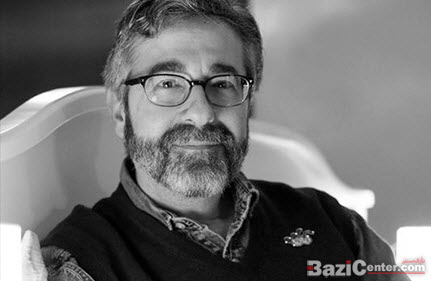
Bazicenter: Tenchu, Metal Gear Solid and Thief were all released in 1998. How do you evaluate that year? Do you think that was the point when stealth-action genre was popularized?
WS: I think you answered your own question. Any time games like that come out at the same time, there’s clearly something in the air, in the cultural zeitgeist that lots of people are thinking about. The cool thing is that those three games took such different approaches to stealth.
Bazicenter: Original Deus Ex was the first game that brought stealth elements into a role playing game. How did you come up with the idea of making it?
WS: The idea for Deus Ex actually arose during the development of Thief. It was back in the mid-90s and I asked the Thief team to up Garrett’s combat abilities because I just wasn’t good enough at sneaking in some places to succeed. They told me they couldn’t do that because, if Garrett could fight his way past guards everyone would take the easier, combat route. They wouldn’t sneak. I thought they were dead wrong and decided to make a game to prove I was right. That ended up being Deus Ex. There’s plenty more about the birth of Deus Ex but that’s where stealth meets RPG meets shooter came from.
Bazicenter: How do you see game industry these days? With lots of sequels and remasters being made, or new IPs that just try to imitate things that have been established by big franchises. Do you think there is a lack of creativity in the industry?
WS: I think there’s a lack of risk-taking in the mainstream of triple-A console games. And you can understand why – budgets have exploded. When you’re spend a ton of money on projects, there isn’t much appetite for taking a lot of creative risks. On the other hand, there’s now a pretty robust indie scene where there’s plenty of variety and creative risk-taking. Take a broader view of what constitutes “the game industry” and you won’t be so concerned.
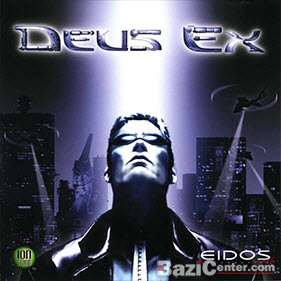
Bazicenter: You have recently started working as an adviser in a project that was founded through a Kickstarter campaign. Many impressive and creative titles that were released recently may never have existed if it wasn’t for those campaigns. Doesn’t it show that there is a huge community of gamers who still want something from games that they don’t get from big budget AAA titles? In general, how do you evaluate the importance of Kickstarter to the gaming industry?
WS: I’m not a huge fan of Kickstarter as a way to fund games. I mean, is it REALLY better to have to serve 10,000 backers than it is to please a single publisher? I’m not sure. Also, you have to have something concrete to show in order to get a Kickstarter off the ground successfully – in a sense, it ought to be called “Kickfinisher,” really. Having said that, if you already have something “pre-sold” (for example a name developer or something inspired by a game people already care about) it can be a great thing. I’m supporting the Otherside project because I have faith the team won’t just recreate the glories of Underworld games of the past but will try to advance the state of the art the way the original game did.
Bazicenter: What do you think about Virtual Reality Headsets? Gabe Newell once implied that they are waiting for a revolution in order to make another Half-life. Do you think VR is that revolution?
WS: I’m probably going to look like an idiot in years to come but I’m just not sold on VR as the future of gaming. I can’t see a lot of people wanting to wear a goofy-looking headset and isolating themselves from the world in order to be immersed in a game. Now, when I say “a lot” we’re probably still talking about several million people who WILL be interested. But compare that with the number of smart phones in the world. Mobile’s way more exciting to me. Now, having said that, there are two things to consider: First, VR can be great for training and other more serious purposes – I just don’t really see it for mainstream games or movies. (Heck, people won’t even wear semi-goofy 3D glasses…). Second, though you didn’t ask about it, there’s also an Augmented Reality movement coming and that really IS exciting. I can totally see people wanting that kind of thing in their homes. Bring on AR!
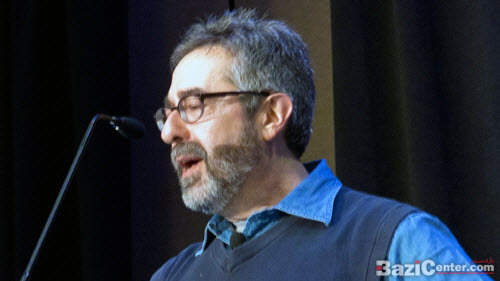
Bazicenter: You have worked with some of the brightest minds in this industry. Is there anyone that you always wanted do work with but you couldn’t? Why him/her?
WS: You know, not really. I’ve already worked with guys like Doug Church, Harvey Smith, Paul Weaver and Chase Jones… and Richard Garriott and Chris Roberts… and other super-talented people. I just want to play games that reflect the unique sensibilities different from my own. Why would I want to muck that up by trying to collaborate with them? They do what they do better than I could; I do what I do and HOPE I do it better than they could. Well, okay, if I had the chance to work with Shigeru Miyamoto or maybe work on an episode for Telltale, I might do it. But that’s still a might. I’d have to think about it long and hard.
Bazicenter: Have you played Deus Ex: Human Revolution? What is your opinion about it?
WS: I have played it. I was pretty impressed. Sure, they made some design decisions I wouldn’t have made. But overall, the game felt like DX and it sounded like DX and its story was about something more complex than most game stories (again, like DX). So, overall, I was happy someone brought DX back and that they were as respectful of what we were trying to do with the original as they were.
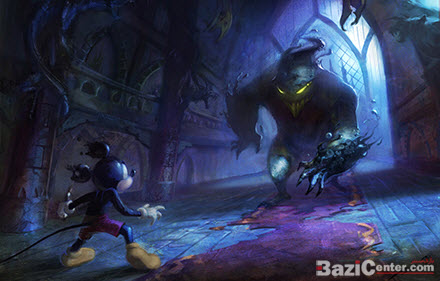
Bazicenter: How about 2014’s Thief?
WS: Sorry. Didn’t play it. I’m a little ashamed – I intended to but public reaction kind of put me off. I’ll probably go back and give it a try at some point.
Bazicenter: What is your favorite title among all the games you’ve made? What about other titles you haven’t worked on?
WS: Asking me what my favorite is hurts. I hate to single one out. If you force me, I’d probably say I’m PROUDEST of the original Deus Ex and Disney Epic Mickey. The former because it’s stood the test of time and was as influential as I hoped it would be; the latter because I was able to work with the most recognizable icon on planet earth (Mickey Mouse), because we were able to bring Oswald the Lucky Rabbit back to the world and because we were able to bring the idea of choice and consequence gameplay to a bigger audience than ever before.
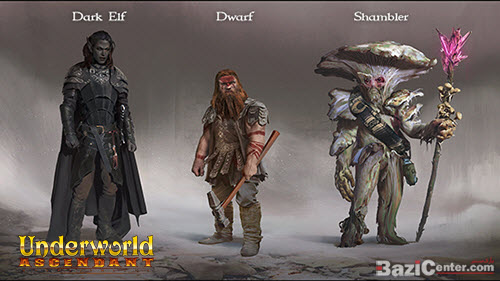
Bazicenter: Can you tell us a little about Underworld Ascendant, the project you are working on right now?
WS: The guys behind that project are still keeping things pretty tightly under wraps but, as I said earlier, the team, many of whom worked on the original Underworld games, have ambitious plans. I’m excited about that and you should be, too. They’re talking about a bunch of stuff we used to talk about at Looking Glass and Ion Storm but never got to do. Keep your eyes on Underworld Ascendant.
Bazicenter: Thank you very much for your time.
WS: My pleasure!
